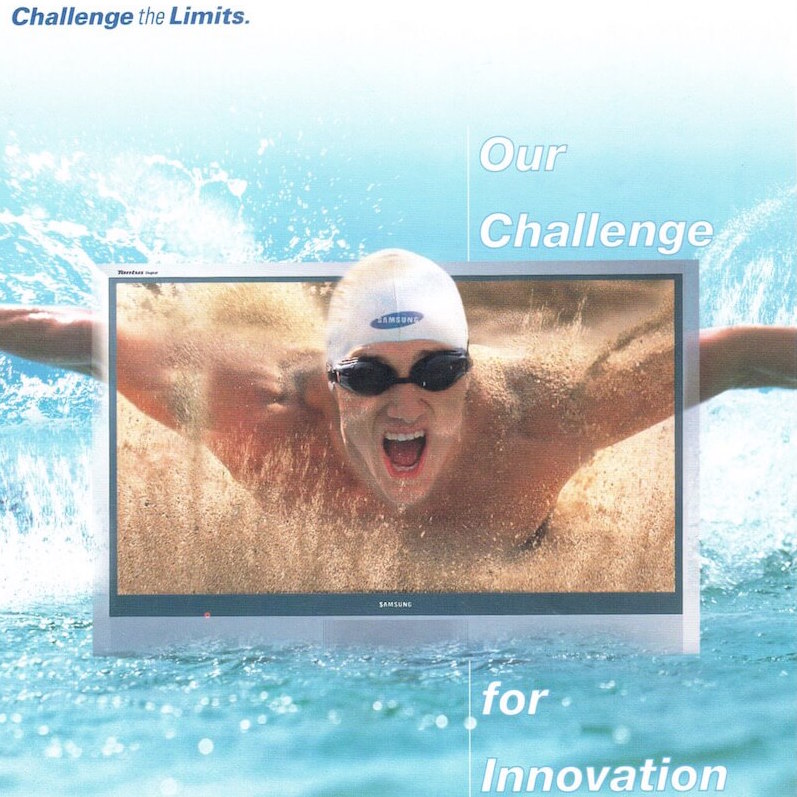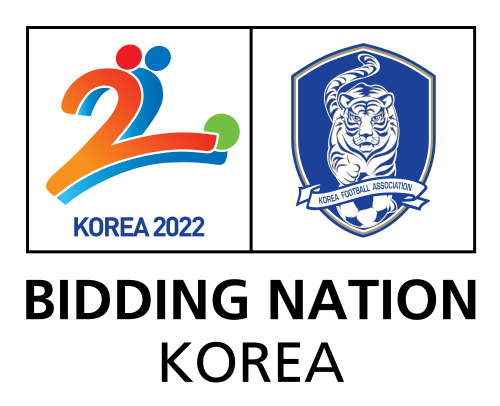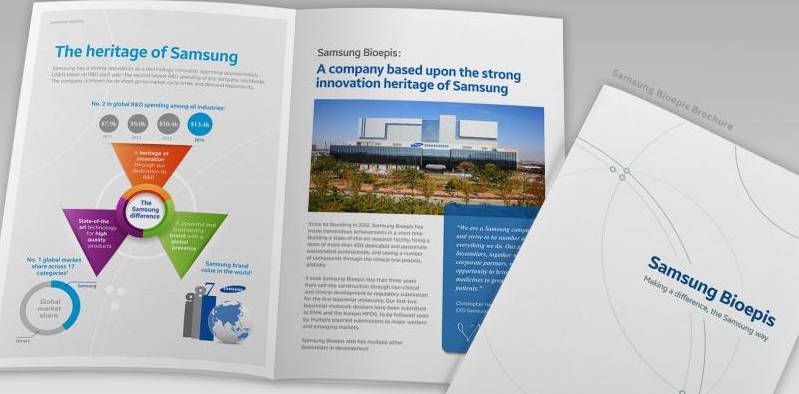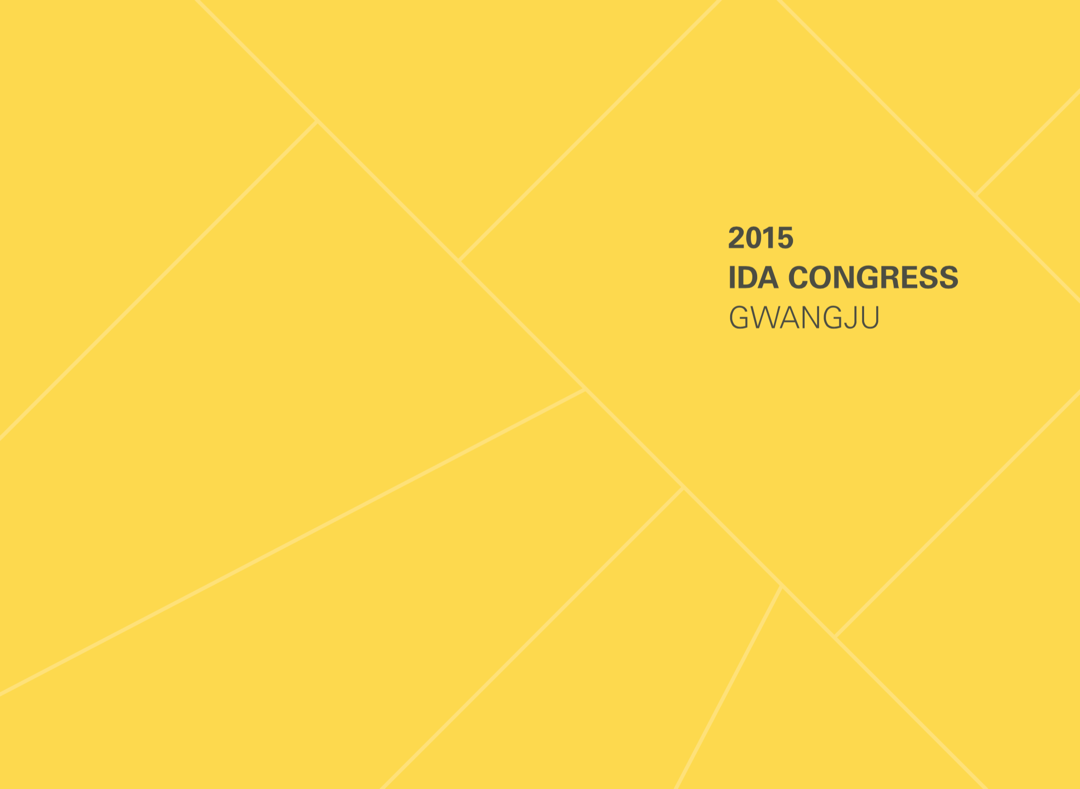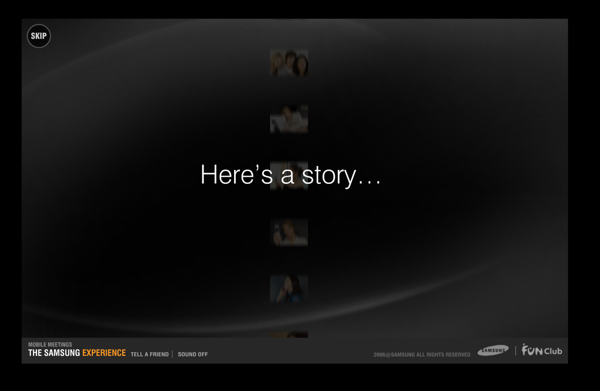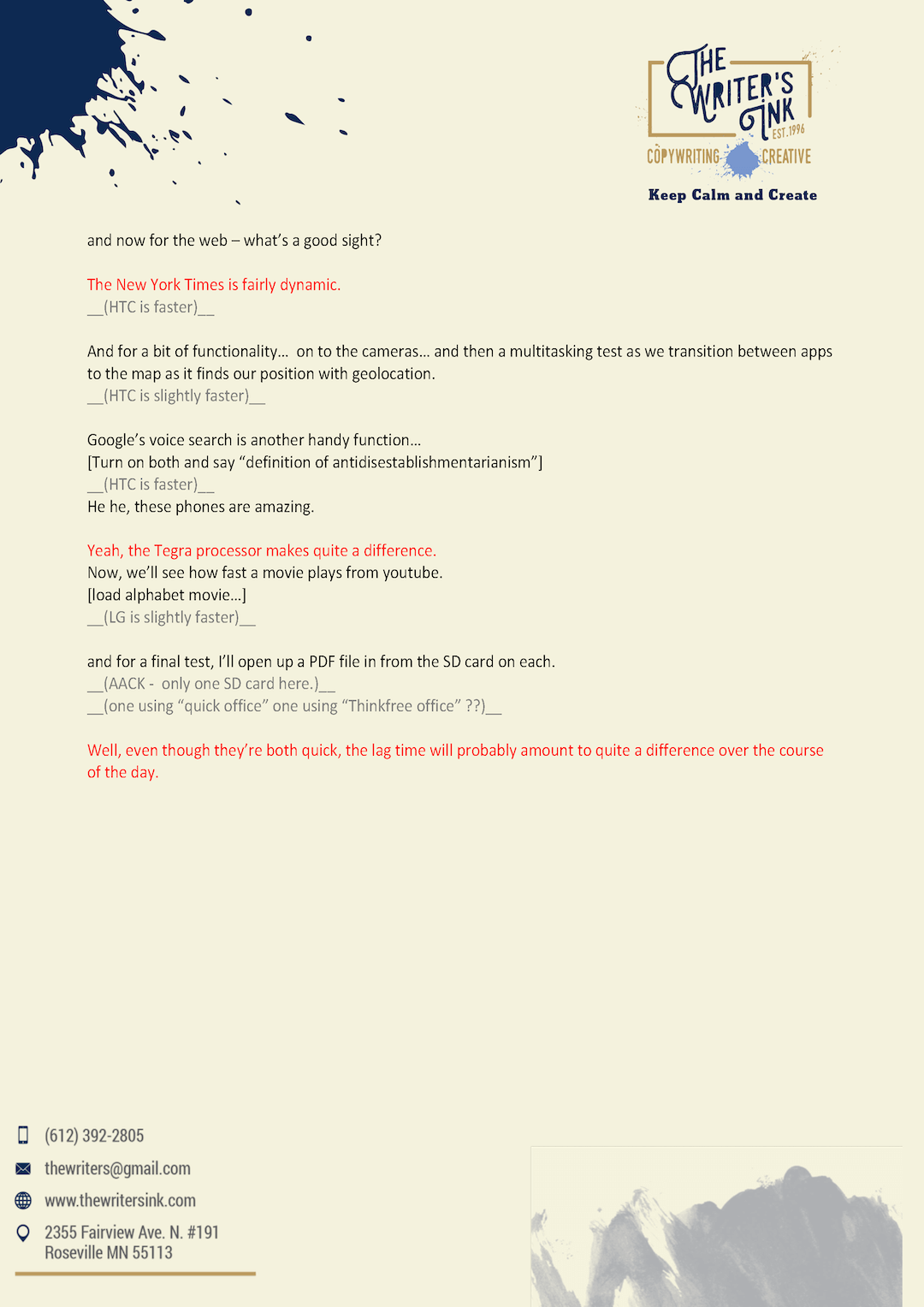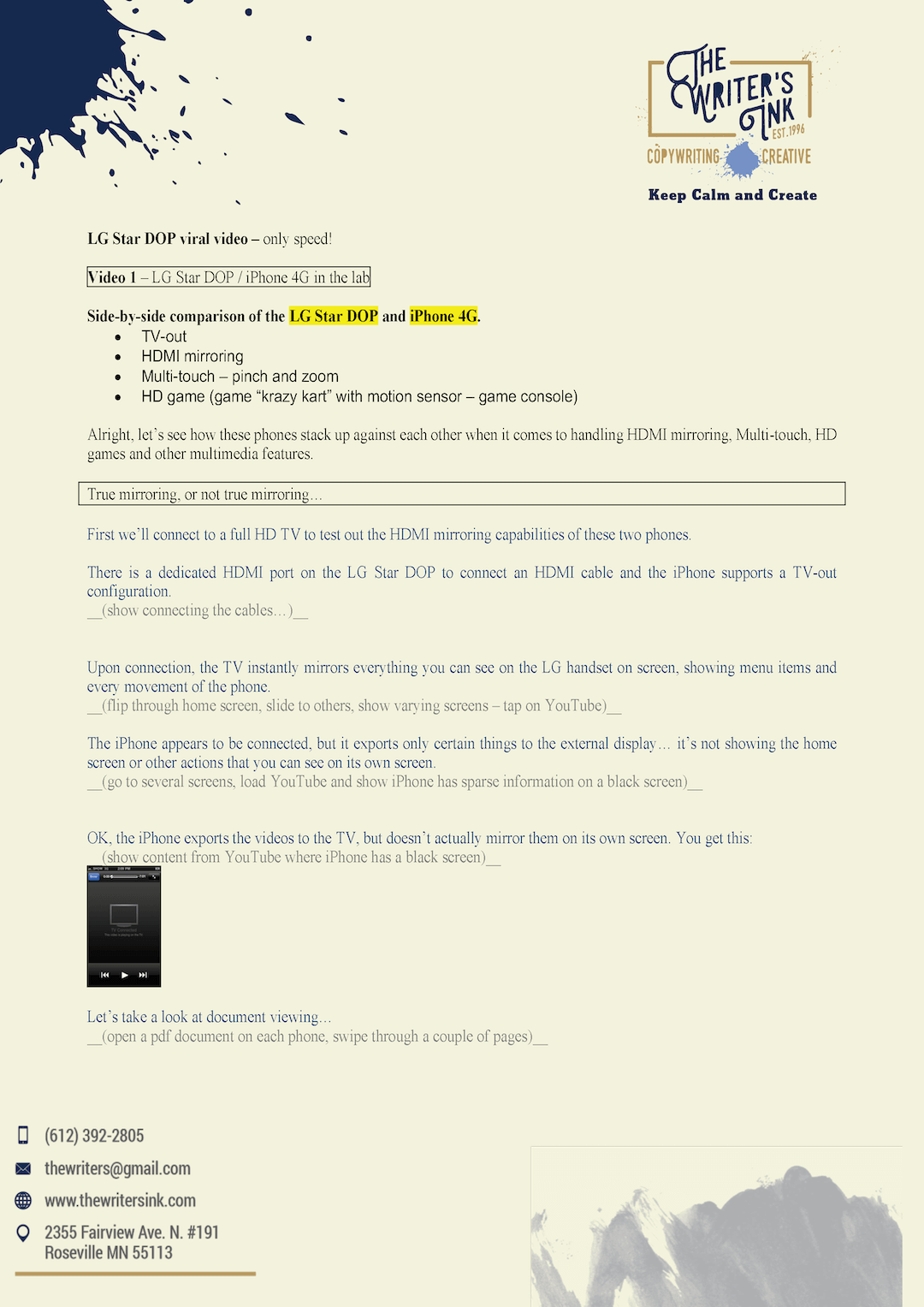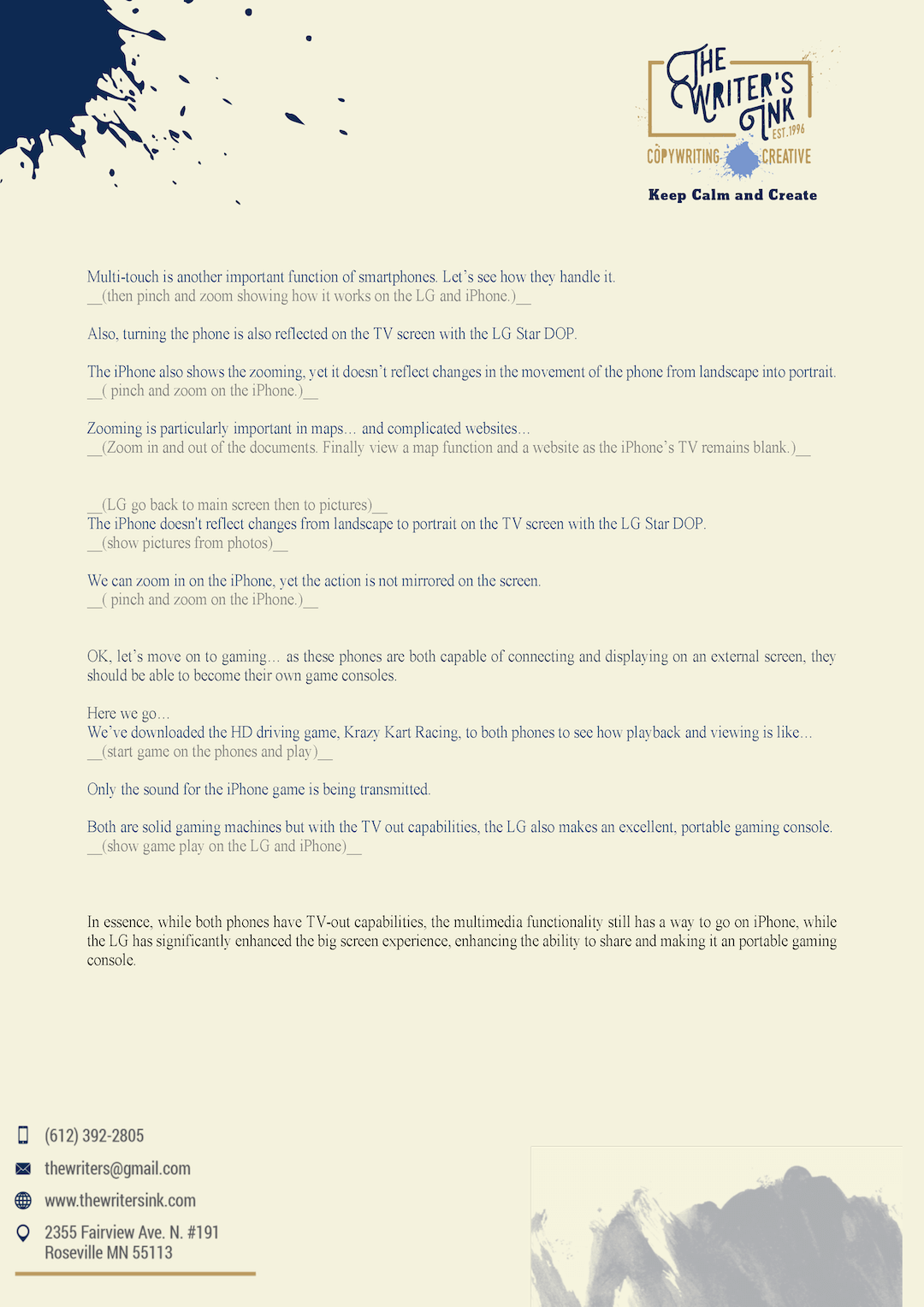
LG Viral Videos
The Challenge
LG needed to create buzz for their soon to be released LG Star DOP mobile, to highlight the speed of its new dual-core NVIDIA Tegra processor and new true-mirroring functionality.
The Solution
We created a series of viral videos of a user doing side-by-side comparisons of the LG Star DOP mobile with a hands-on speed test and two colleague’s conversation in the lab as they tested its capabilities.
LG Viral Videos

Print Proposal
A Note from PETER LIPTAK
Writing for The Four Major Rivers Restoration Project was a task that required a deep understanding of environmental issues and the ability to communicate complex concepts clearly. It was vital to present a balanced view that acknowledged the concerns while emphasizing the positive outcomes expected from the project. This work reinforced my belief in the power of well-crafted copy to shape public perception and support for significant environmental initiatives.
THE RIVER'S FLOW: The Four Rivers Restoration Project
OFFICE OF NATIONAL RIVER RESTORATION MINISTRY OF LAND, TRANSPORT AND MARITIME AFFAIRS
A Tale of Four Rivers
Growing ever more soulful and scenic,
four rivers forever infused with history’s narrative
run deeper by day with renewed hope
and the cleansing chronicle of nature’s nourishing water.
Korea’s Ambitious River Revitalization Project
Investing in a safe and sustainable Korea, now and in the future
The Four Major Rivers Restoration Project is a comprehensive, pan-governmental project, representing the collaborative commitment of municipal, provincial and national government bodies with contributions from social organizations to protect Korea and its future generations from water related disasters caused by climate change while promoting green growth.
- PROLOGUE - Water Resources and National Security
As a farming nation, despite Korea’s annual rainfall (1,245mm/1yr) being significantly higher than the world average of 880mm, its people regularly held rain rituals. The simple reason was a lack of sufficient storage capacity to save rainwater for use in dryer months. Korean rain is primarily seasonal with 70% of annual rain falling in the short rainy season. Fortunately, modern infrastructure developed to equip cities with reservoirs and government initiatives striving to maintain forest conservation nationally, those rituals have become a thing of the past. Even so, in order to ensure people’s enjoyment of affluent lifestyles, Korea must endeavor to provide more abundant, cleaner water for residential and industrial consumption.
More importantly, the preemptive storage of water resources is becoming increasingly vital due to global warming and the resulting climate change, which is creating above-average temperatures and increases in the frequency of intenserainfall around the world. Since October 2009, five provinces of China have experienced water shortages as a consequence of unusually severe droughts leaving 25 million people and 16 million cattle reportedly suffering from the effects (Bloomberg, Business Week; April 26, 2010). The Yangtze flowing along the city of Chongqing has begun to reveal its riverbed; reservoirs are dried up and desolate; 768 hectors of agricultural land have been damaged from the drought, and some 5 million people of the Yunnan Province are faced with food shortages.
What the future will bring, what scorching droughts, what intense storms, and when is imminently unclear. Such uncertainty about the availability of our most important natural resource will prove in retrospect that water was far more precious than oil. Unlike crude oil, water cannot be substituted for anything else, like energy resources. Water is as crucial a matter of survival as national security. Without adequate water resources, we humans cannot survive, let alone dream of building a rich and powerful nation. Hence, securing our future water resources cannot be measured in monetary amounts – it is measured in lives.
More From Our Portfolio



